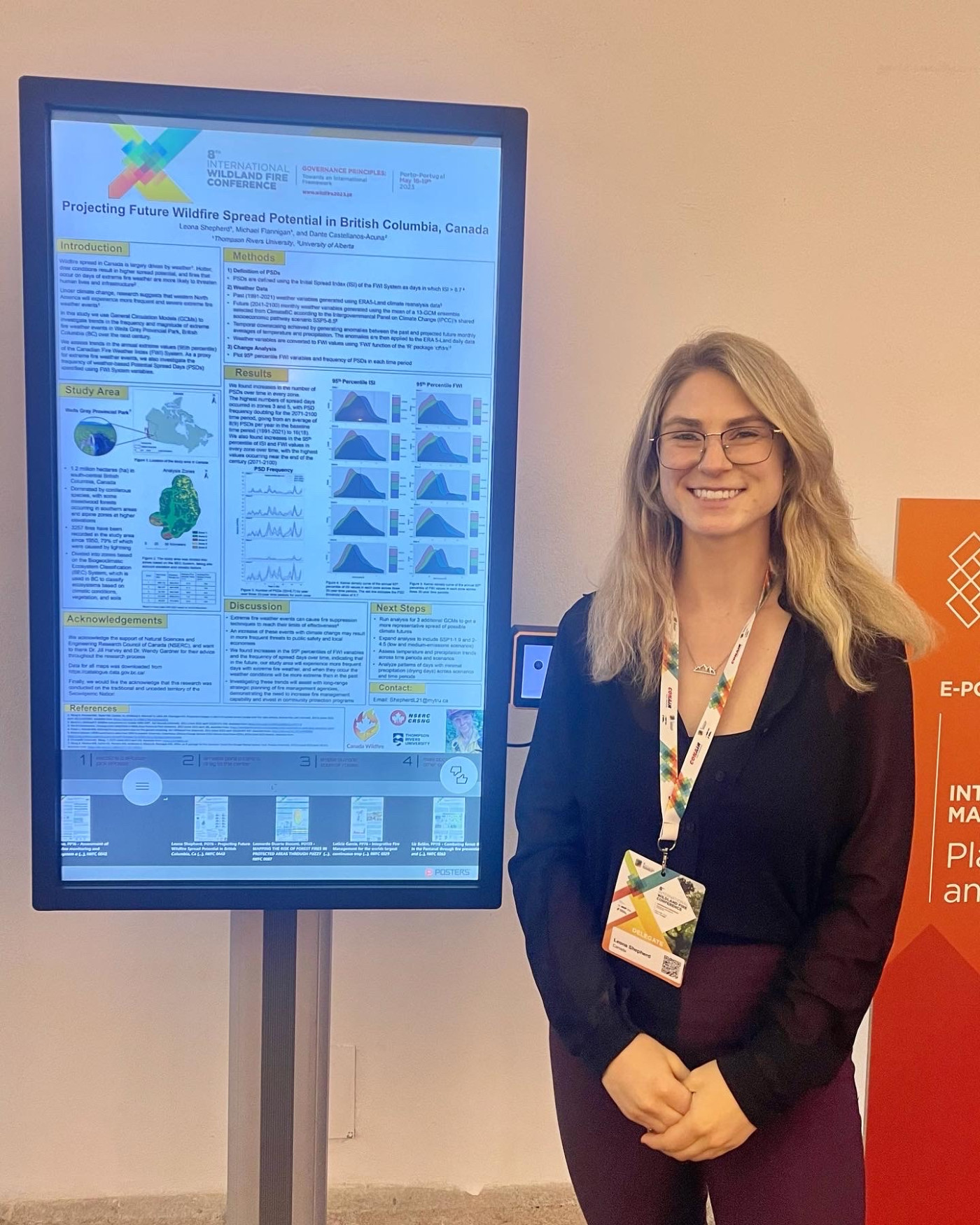Thompson Rivers University (TRU) Master of Science in Environmental Science student Leona Shepherd feels inspired to change how wildfire management is approached.
After attending the Wildland Fire Canada Conference in Edmonton last October, the opportunity to participate in the International Wildland Fire Conference (IWFC) in Portugal in May was a clear choice for her.

Leona Shepherd expanded her understanding of wildfires at an international conference in Portugal.
“It was a great opportunity to expand my understanding of wildfire beyond our borders and learn more about where my research fits in the bigger picture,” says Shepherd.
She is researching projecting future wildfire spread potential under Dr. Mike Flannigan, a renowned wildfire expert and the BC Research Chair in Predictive Services, Emergency Management and Fire Science at TRU.
“Attending the 8th International Wildland Fire Conference was a great experience for Leona to hear about recent developments in fire research and fire management,” says Flannigan. “More importantly was the time meeting fire researchers and managers from around the world and gaining insights into our diverse wildfire world.”
The conference theme focused on preventing and mitigating fire impact, and shifting toward traditional land management rather than strictly fire management.
“There was a session with research scientist Bill de Groot from the Canadian Forest Service that aligned perfectly with the main theme,” says Shepherd. “He talked about the importance of an early warning fire system and how we can apply science to help fire managers make decisions on the ground.”
Integrated fire management
The IWFC exhibitors are at the forefront of technology in wildland fire. Companies like Fire Neural Network showcased their high-risk lightning FireBird drones that use Artificial Intelligence to detect lightning strikes within seconds.
“There is a lot of pressure for short-term solutions, like putting out fires when they are there,” says Shepherd. “What we need to shift to is more integrated fire management, where we change the landscape to make it more resilient to fire through landscape-level fuel breaks, the application of prescribed fire, and a focus on mitigation and adaptation.”
More than 1,300 participants from 90 countries participated in the four-day conference, which included over 200 speakers and workshops, including a keynote from American author and professor emerit at Arizona State University, Stephen J. Pyne, who specializes in environmental history, specifically the history of fire.
“Stephen’s keynote resonated with me the most,” says Shepherd. “He said we need to reconceptualize what a working rural landscape looks like and figure out what type of fire works there and recover traditional knowledge, and that rang true to me.”
Hearing from women
She also attended a Women in Wildfire workshop where she connected with participants from the UK, South Africa, Brazil and the Netherlands.
“I left that session feeling a little emotional. It was very powerful to hear so many stories from people who all shared that common ground of being a woman in a male-dominated field, particularly in different countries where they might lack the social support for that type of career and feel a lot more pressure to stay at home with the family,” she says.
She returned from the conference motivated to spend the summer working in her field before returning to campus in fall.
“Fires around the world are exhibiting increasingly extreme behaviour and causing more severe impacts on ecosystems and communities. And the simple approach of prevention and suppression that we used to follow as land managers needs to give way to a more robust framework that is capable of addressing the uncertainties of climate change.”

